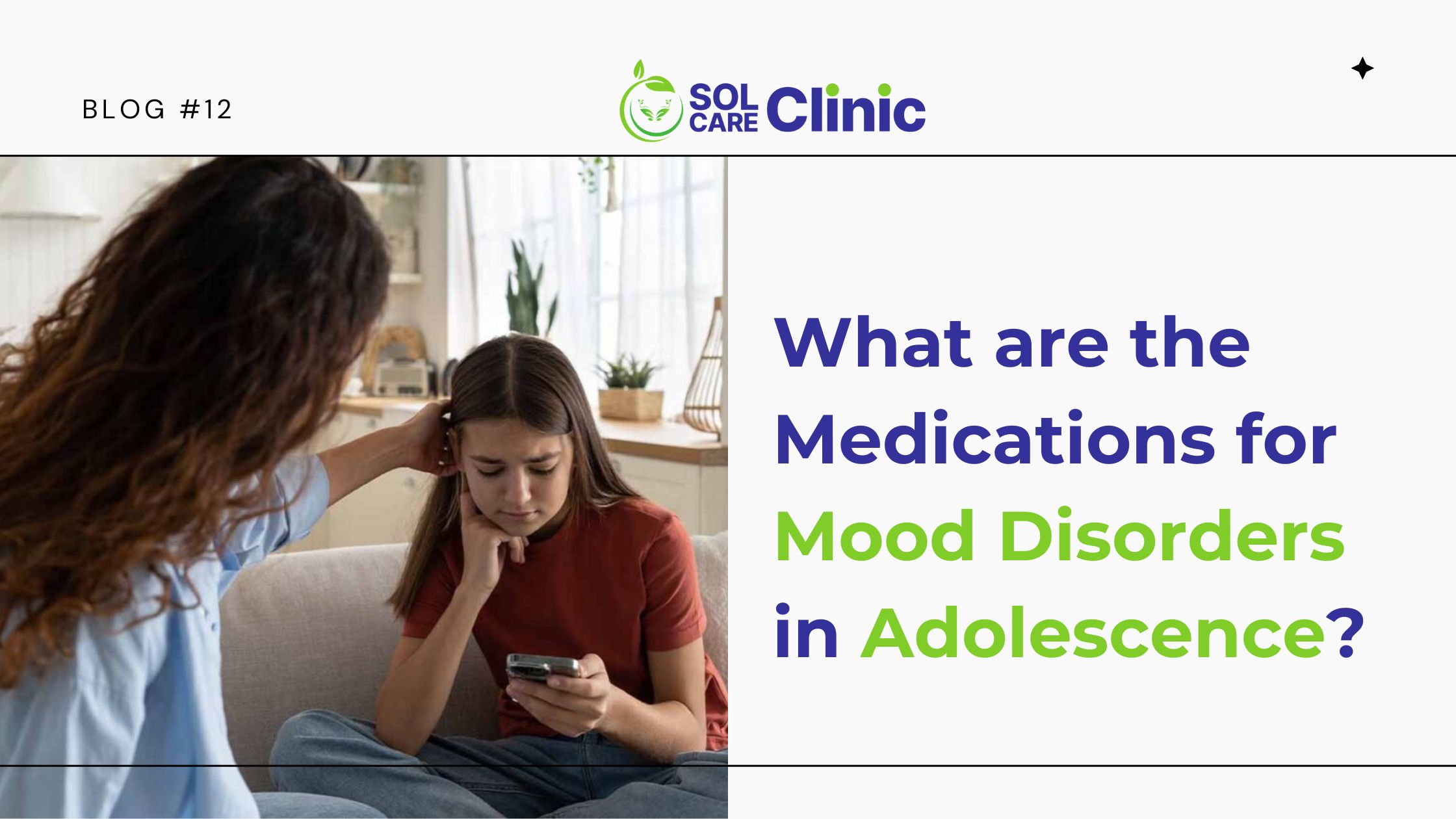Thinking about giving medicines to your child or teen can feel overwhelming, but learning more about it can help ease your concerns.
Helping teenagers understand and recognize sound, positive reasoning from misguided, burdensome reasoning is a significant positive development. Assisting guardians and companions with laying out areas of strength for a framework around the youngster is also substantial.
High schooler temperament problems are described by undesirable changes in state of mind, generally as burdensome or hyper side effects. While temperament changes and emotional episodes inside the proper setting are typical, unexpected episodes of outrageous trouble or unexplainable enthusiasm and hyperactivity might indicate a more profound issue.
What do mood disorders look like in adolescence?
A temperament problem is described by a continuous troublesome profound expression that doesn’t die down, regardless of not having any reasonable reason or despite changed conditions.
Teenagers with temperament problems might show terrible reasoning, reliably low mindsets, and contemplations of self-destruction.
A few teenagers battle with both burdensome and hyper side effects, displaying wildly invigorated and upset conduct, crabbiness, and fretfulness, and the sky is the limit from there. These sentiments travel every which way in waves, typically moving on more than one occasion per year.
Medications for mood disorders in adolescence:
-
Selective Serotonin Reuptake Inhibitors (SSRIs)
Commonly used for treating adolescent depression, SSRIs can help regulate mood by increasing serotonin levels in the brain.
-
Serotonin and Norepinephrine Reuptake Inhibitors (SNRIs)
These medications work similarly to SSRIs but also affect norepinephrine levels, which can be beneficial for some individuals with mood disorders.
Atypical Antipsychotics:
Sometimes prescribed in combination with antidepressants, these medications can help manage symptoms of severe mood disorders like bipolar disorder or severe depression.
-
Mood stabilizers
Used primarily for bipolar disorder, these medications can help level out mood swings and prevent manic or depressive episodes.
-
Psychotherapy
While not medications, therapies like cognitive-behavioral therapy (CBT) or dialectical behavior therapy (DBT) are often used in conjunction with medications to provide comprehensive treatment for mood disorders in adolescence.
Significant reminders about medications
- There isn’t only one kind of medication to treat bipolar disorder.
- The strength and recurrence of portion change and are individualized for all prescriptions.
- Aftereffects shift contingent upon the drug and portion and can be different for everybody. Gauging the Side effects and advantages of any medicine is a conversation you should have with your primary care physician and your kid.
- Medications often need to work together for the best possible outcome.
- Individuals may have to attempt different prescriptions before finding one that works.
What causes an adolescent mood disorder?
Mood disorders were accepted to be brought about by brain uneven characters and hereditary contrasts in compound cycles inside the brain for quite a while. In any case, ongoing examinations recommend that this isn’t correct and that distinctions in neurotransmitters don’t play a part in burdensome and hyper side effects, as recently suspected. All things being equal, the reason for mind problems is accepted to be biopsychosocial, with a wide assortment of potential factors and causes, including gut flora and gut microbiology, physical trauma, hormone changes, and more.
-
Gut flora
Research demonstrates that infections, natural variables, and hereditary elements adversely influencing the stomach might prompt expanded opportunities for different mental circumstances, including nervousness and sorrow. Stress can likewise adversely affect the stomach and deteriorate any burdensome contemplations.
-
Thyroid problems and hormone changes
Hypothyroidism and hyperthyroidism both intensify and enormously increment the gamble of a significant burdensome problem, as do different infections and conditions that influence chemical guidelines and temperament guidelines all through the body and mind.
-
Trauma and psychological pain
It is entirely expected for a youngster with no reasonable gamble factors for discouragement to foster burdensome side effects and an all-out problem because of a horrible mishap or because of predictable mental and physical abuse.
Other side effects may include
-
Drowsiness
A common side effect it may subside as your body adjusts to the medication.
-
Headache
Occasional side effect; staying hydrated and resting can help alleviate it.
-
Nausea or Vertigo
This may occur initially but usually improves over time; inform your healthcare provider if it is persistent.
-
Diarrhea
Maintaining a balanced diet may help manage this symptom.
-
Excessive Thirst
Ensure you stay hydrated and sip water throughout the day to alleviate this.
-
Increased Urination
This common side effect is usually temporary; consult your doctor if it is severe or persistent.
-
Weight Gain
Monitor your weight regularly; a balanced diet and exercise can help manage this effect.
-
Weakness or Fatigue
It is common initially but should improve as your body adjusts to the medication.
Conclusion
Supporting an adolescent with a mood disorder requires compassion, tolerance, and a cooperative methodology, including treatment, medications, and lifestyle changes. Medications are vital in treating mind issues by adjusting neurotransmitters in the brain, easing side effects, and balancing temperament. They frequently work closely with treatment to give exhaustive consideration and further develop the individual’s satisfaction.





